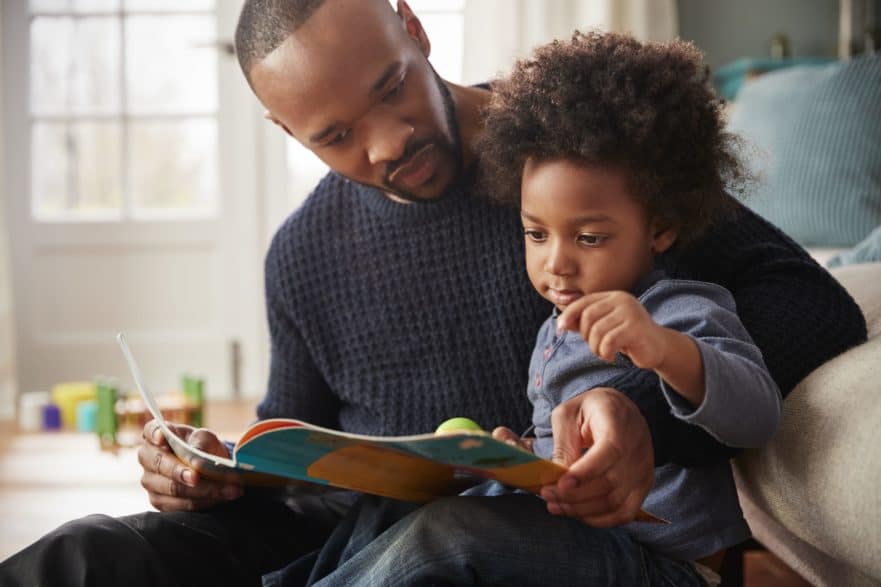With millions of Americans dealing with anxiety, burnout, and other issues, it’s little wonder that self-help is now a $12 billion industry—more prosperous than Major League Baseball. For whatever pain, stress or trauma you might be going through right now, you can easily find dozens, if not hundreds, of books on that subject through Amazon or on the shelves of Barnes & Noble.
While some of those books may be truly helpful, we don’t always have the bandwidth for them when we’re hurting. Many of us have neither the time nor the patience to scour those books for the answers we need. And if we chased after every book that claimed to have the secret to happiness, we’d be flat broke.
But here’s a little secret: Children’s books aren’t just for children. The truths of self-care are often best expressed in simple, easy-to-understand terms. Every so often we come across a deep children’s book that can bring us more comfort in 10 minutes than if we’d spent hours poring over the latest 200-page best-seller. Let’s explore five children’s books that teach some surprisingly deep lessons about how to take care of yourself.
The Heart and the Bottle by Oliver Jeffers
This book tells the simple yet poignant story of a young girl who lives with an open heart and sees the magic in life all around her. But as she tries to cope with a loss, she puts her heart in a bottle, supposedly to protect it from hurt. In the process, she begins to lose her sense of wonder, until one day, when she is older, she meets a young girl who reminds her of who she used to be—and she learns once again to live with an open heart. Told as a parable of sorts, this lovely tale reminds us that sometimes the things we do to protect ourselves may also cost us our sense of wonder, and in the end, the joy of life is worth the risk of pain.
Looking For Therapy?
Start Healing Today.
212-960-8626
Chrysanthemum is a little girl mouse who loves the sound of her name—that is, until she steps into kindergarten for the first time and the other little mice make fun of her for being named after a flower. For a time, she allows their teasing and bullying to dim her spirit and her self-esteem. But then she meets a special teacher with a unique name of her own—Delphinium—who plans to name her new baby Chrysanthemum as well. Her perspective changed, Chrysanthemum learns to love herself again. Told with tongue-in-cheek humor, this lovely illustrated book reminds us how our differences make us special and the importance of loving oneself.
Whimsy’s Heavy Things by Julie Kraulis
“Whimsy’s heavy things were weighing her down.” From the opening line of this delightful book, we can tell this is a story about dealing with issues. It’s a metaphor anyone and everyone can relate to—how we carry heavy weights around and the ways we try to deal with them. After trying unsuccessfully to sweep her heavy things under the rug, hang them from a tree and sail them out to sea, Whimsy realizes she can lighten her load by approaching her heavy things one at a time.
Gentle Willow: A Story for Children About Dying by Joyce C. Mills, Ph.D.
This title leaves no illusions about the story’s subject matter. Amanda the Squirrel is friends with a tree named Gentle Willow, but she is devastated when she realizes her tall friend is sick and will soon die. As Willow begins to wither, Amanda struggles with a whole gamut of emotions. Ultimately, the wisdom of the tree wizards helps Amanda, Willow and the rest of the forest come to grips with her death as a part of life. A moving story that handles a delicate topic. Gentle Willow is therapeutic for children and adults alike—both those who are dealing with a death, and those who may be about to.
Perhaps an alternate title for this book could be “A Lion by Whose Definition?” Leonard is a lion but he doesn’t fit the mold of what most of us think a lion should be. Instead of being a fierce hunter, he’s a philosopher and a poet and his best friend is a duck. When a group of lion bullies confronts him for not fitting in, Leonard comes to realize that his true strengths are in his kindness, mindfulness, friendship and his ability to be true to himself—even in the face of adversity. This is a wonderful tale that will speak volumes to anyone who feels like a misfit or anyone who has ever been bullied.

